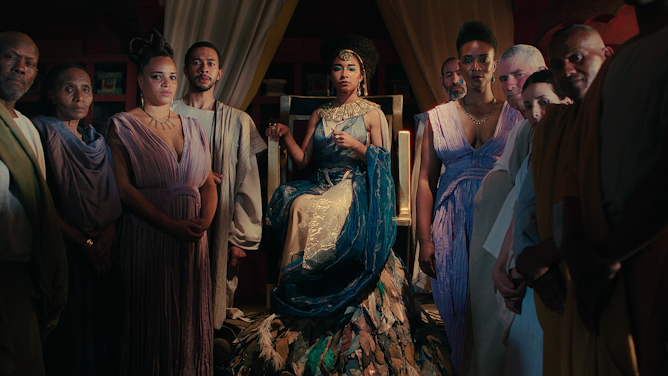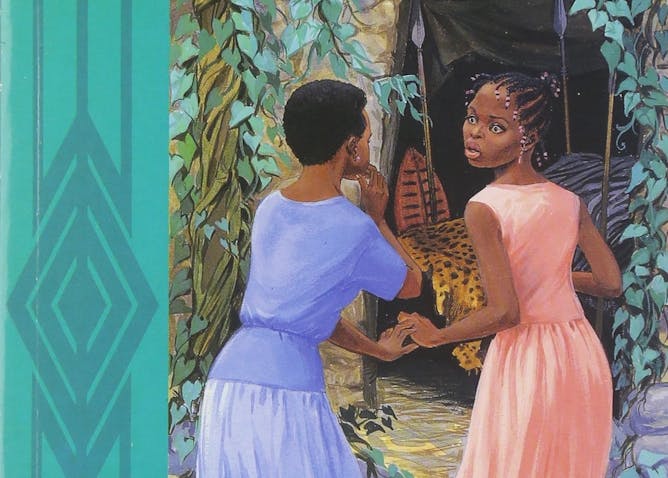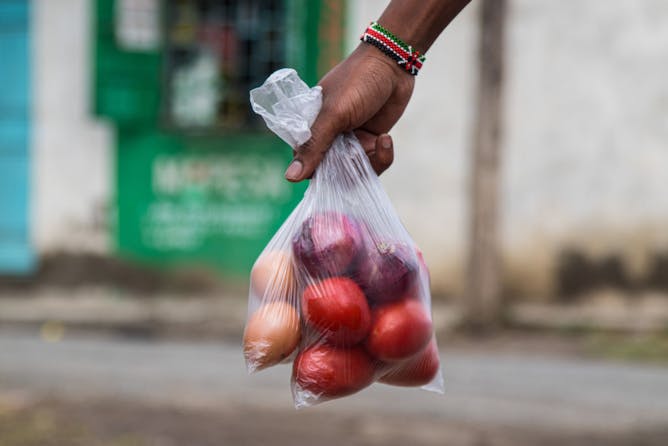|
Cleopatra has been in the news ever since I was a child. This week it was the arrival of a new Netflix docudrama, Queen Cleopatra, that had a lot of people - particularly Egyptian officials - in a mild uproar because the queen is portrayed by a black actress when she was, in fact, of Greek origin. But the debate has more to do with our racially obsessed age than hers, writes leading Egyptologist Toby Wilkinson. He also gives his views on why popular culture has always been obsessed with Cleopatra's looks - and explains why her political brain was what mattered more.
In east Africa, after independence in the 1960s, it was politically astute women who quietly laboured to create books for a new generation of post-independence children. In a fascinating read, Anna Adima traces the rise of this revolutionary literature that served as an antidote to Enid Blyton and the Famous Five. It both educated children about precolonial Africa and played out in postcolonial realities.
|

|
Charl Blignaut
Arts, Culture and Society Editor
|
|

Toby Wilkinson, University of Cambridge
The ethnicity outcry says more about today’s preoccupations with race than ancient Egypt’s.
|

Anna Adima, The University of Edinburgh
At independence, adults were reading decolonial classics - but children were reading Enid Blyton. A generation of unsung women writers changed that.
|
Arts, Culture + Society
|
-
Jochen S. Arndt, Virginia Military Institute
Missionaries and African translators working on local versions of the Bible divided South Africa’s ethnic groups by language.
-
Fathima Azmiya Badurdeen, Technical University of Mombasa
Both cults and violent extremist movements have similar push and pull factors at the individual level.
|
|
Health + Medicine
|

Joel Msafiri Francis, University of the Witwatersrand
University students are particularly at high risk of depression. One global study suggests 21% of students have major depressive disorder.
|
Politics
|
-
John Mukum Mbaku, Weber State University
Sudan’s current conflict will have economic, social and political ripple effects across a number of countries
-
Daniel Banini, University of Central Florida
A lack of political legitimacy can lead governments to illegal purchases of small arms and light weapons.
-
Jeffrey Conroy-Krutz, Michigan State University
Finding the right balance between media freedom and limits remains one of the greatest challenges modern democracies face.
|
|
Environment + Energy
|

Jane Mutheu Mutune, University of Nairobi
No scientific monitoring was put in place to track the environmental benefits of banning plastic carrier bags.
|
Business + Economy
|
-
Wandile Sihlobo, Stellenbosch University
A third of South Africa’s farming income depends on irrigation. Disruptions in power supply put huge chunks of the country’s agricultural fortunes at risk.
-
Lauren Johnston, University of Sydney
China’s population decline and intensive ageing will offer opportunities and risks to African countries.
|
|
Science + Technology
|

Alan Christoffels, University of the Western Cape; Sofonias Kifle Tessema
Time and information is of the essence when tackling infectious diseases across countries and continents.
|
| |
|
|
16 May 2023
•
Johannesburg
|

|
|
|

|
17 - 19 May 2023
•
Stellenbosch
|

|
25 May 2023
•
Johannesburg
|

|
|
|
|
| |
| |
| |
Would you like to republish any of these articles?
|
|
It’s free to republish, here are the guidelines.
Contact us on africa-republish@theconversation.com in case you need assistance.
|
| |
| |
| |
| |
|
|